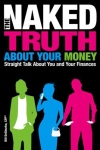I recently had a conversation with a client about the strategy for his account in 2015. He indicated that since the market is at an all time high, he expects the market to crash by the end of summer as the Fed raises interest rates. And he would like to adjust his holdings accordingly.
Many of you are probably nodding your head in agreement with this sentiment.
However, please let me remind everyone, that if it was that simple and obvious to predict the economy, let alone the market with that much accuracy there would be many more rich people walking around than there are today! The only thing that is certain, is that what seems “certain” rarely is!
Case in point is a part of an email I received from Fuller Treacy Money, their comment of the day. For those who want the short version it is this: the article sites two economists from Harvard. They are very well known and respected economists. They have nearly opposite opinions.
The point I hope is obvious, if such esteemed economists with the same background, see the world so differently, how can any of us, without the resources and time to study these things as professionals do, be so sure that our opinions will be the ones that in fact pan out in the year ahead?
We just don’t know what the future holds and the best investment strategy is to listen to what the market tells us as we go along, use tried and true investment strategies, and always be aware…and have a strategy…for when things do change!
Below is the piece from Fuller Treacy.
A standing-room only crowd packed a hotel ballroom on Jan. 3 to hear…Professors Lawrence Summers of Harvard University and Robert Gordon of Northwestern University in Evanston, Illinois, defend their views.
“Just because we have 5 percent growth doesn’t mean we are out of the woods,” Summers, a former Treasury secretary and senior White House official, told the American Economic Association meeting in Boston, alluding to the U.S. economy’s pace of expansion in the third quarter.
He rattled off a variety of reasons for caution. Among them: the risk of financial bubbles, the difficulties the Federal Reserve may face in raising interest rates back to more normal levels, and continued excess capacity in Japan and Europe.
Summers also compared the euro area’s situation today with that of Japan in the late 1990s, before it slipped into a deflationary funk, and warned that the U.S. could be in for an extended period of a “dismal growth rate below 1-1/2 percent.”
Fellow Harvard professor Greg Mankiw took issue with that gloomy prognosis as far as the U.S. is concerned. In particular, he highlighted the improving labor market, where unemployment is at a six-year low and wages have begun to rise.
“We are returning to normalcy,” said Mankiw, who is also chairman of the economics department at Harvard in Cambridge, Massachusetts and a former chief White House economist.






